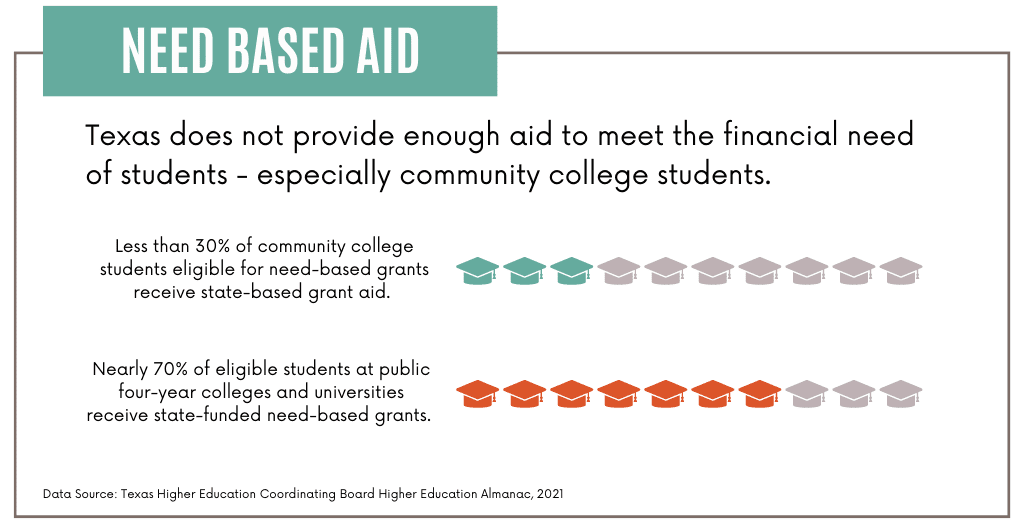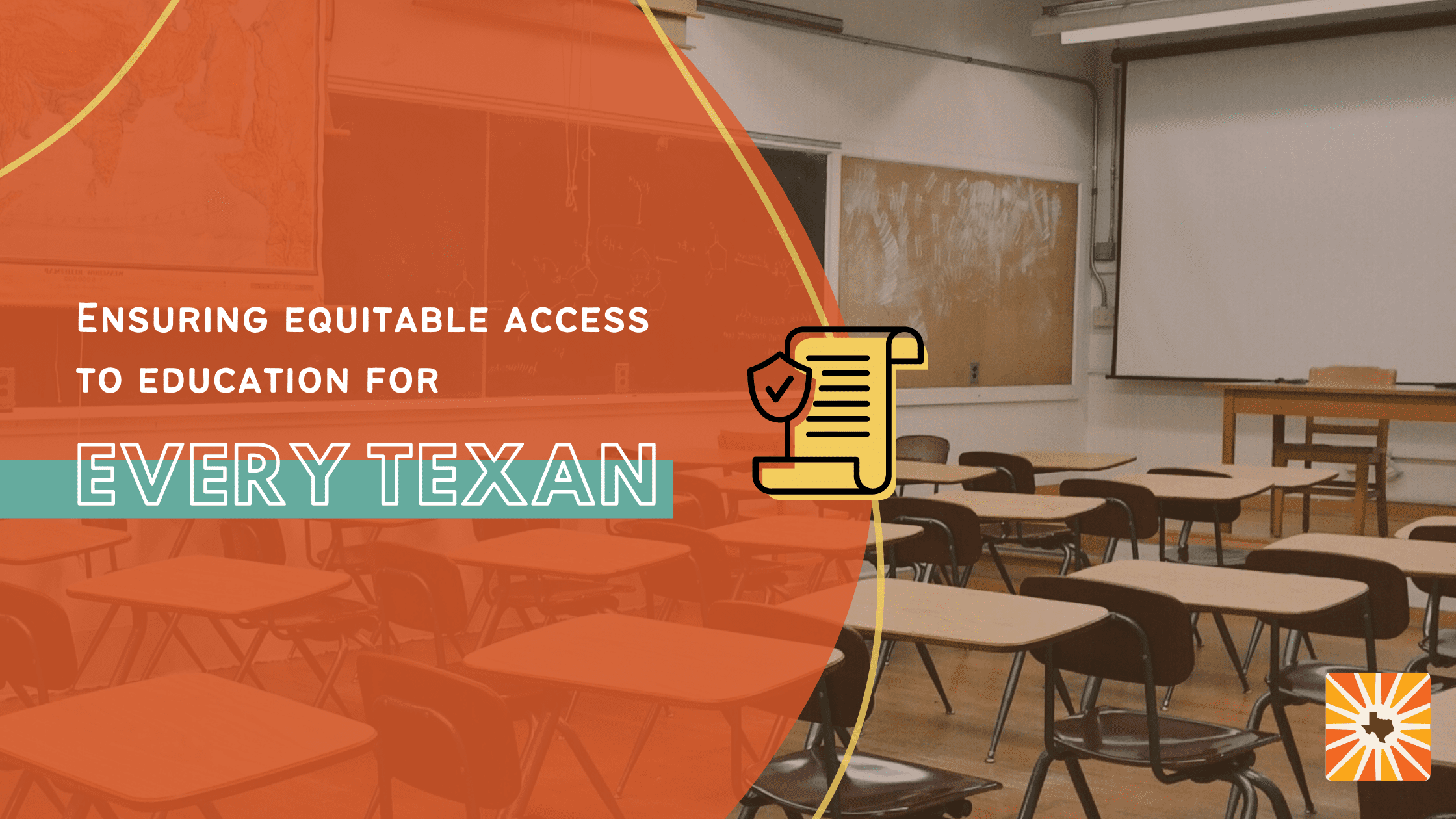View this testimony as a PDF here.
Every Texan is an independent public policy organization that uses data and analysis to advocate for solutions that enable Texans of all backgrounds to reach their full potential. We envision a Texas where everyone is healthy, well educated, and financially secure. To reach this vision, the Legislature should adequately fund public higher education and college financial aid.
There is no question that our Texas economy is thriving. However, without an increased investment in equitable funding for public higher education institutions, our state will fail to supply businesses with well-educated, trained, and skilled workers needed to maintain a growing society. A lack of equitable funding for public higher education institutions also jeopardizes the social well-being and social mobility of students and families from various racial and socioeconomic backgrounds.
As our labor market demands an increasingly educated and specialized populace, more and more Texans from low-income, systematically marginalized communities are seeking higher education, but ever-increasing tuition rates and cost of living make this life goal unattainable for many. To fulfill our promise to the next generation of Texans and support our growing workforce, policymakers must work together to ensure sufficient opportunity and support so all Texans have access to an affordable post-secondary education, at every college or university type, despite zip code or background.
Invest more state aid into our 2- and 4-year higher education public institutions
For the past 14 years, tuition and fees per full-time student at public universities has exceeded state general revenue support. In 2020, this diverging difference resulted in state support of $5,673 per state-funded student while tuition and fees averaged $9,003 per student. Four-year colleges and universities need additional state funding to provide academic and social-emotional support.
The community college sector is particularly impacted by the increased cost of postsecondary education for Texas families as the state has also decreased funding to community colleges since 1980. During the 2022-2023 academic year, state contributions to community colleges accounted for $2.5 billion – which is only 19 percent of the funding received. Decreased state aid to community colleges has required these colleges to rely on federal aid or local property taxes to keep tuition and fees from rising. We support the contingency in House Bill 1 for community college finance legislation for formula funding based on the recommendations of the Texas Commission on Community College Finance. Supporting colleges that educate and train economically and academically disadvantaged students and offer a wide variety of education and training programs is essential to ensuring these investments in higher education reach every Texan.
Fund more TEXAS Grants and TEOG for eligible students
The House Finance budget, as proposed, does not adequately support the immediate need for TEXAS (Towards Excellence, Access, and Success) Grant Program or TEOG (Texas Educational Opportunity Grant) Program for public community or state technical colleges to fund all eligible students. The Higher Education board is not expected to receive additional funding to expand these programs for the next two years.
More Texas students who demonstrate financial need deserve state-funded, need-based aid. Instead of providing all eligible students with a need-based grant, Texas only provides need-based grants to 70 percent of students at four-year colleges and less than 30 percent of students at community, state, or technical colleges.

Recommendations for equitable funding to higher education institutions
Over and over again, we keep hearing that this budget session has more money than what is needed. The historic budget balance , if used correctly, can be invested in our state’s higher education institutions, from South Plains College in Levelland to Prairie View A&M, that have continuously produced positive economic and social benefits for Texas’ students and families.
I know firsthand the opportunities that an accessible and affordable education can provide students and families. As a previous first-generation, low-income college student who graduated with zero student loans, I know it was because of the need-based funding that my undergraduate school and state provided me. This Legislature can make that investment in our students and state, now.
Every Texan calls on the House Finance committee to increase funding for financial aid grants (TEXAS Grants and TEOG) to expand access to all eligible students. Additionally, the state should increase contributions to 2- and 4-year public colleges and universities. We also support funding for potential updates to community college finance formulas and funding legislation; especially if changes include more equitable distribution of resource such as increased aid for low-income students, aid to colleges supporting the higher costs of educating non-traditional students and students who are economically and academically disadvantaged, and provides unbiased aid for a wide variety of education programs, degrees, and certificates
